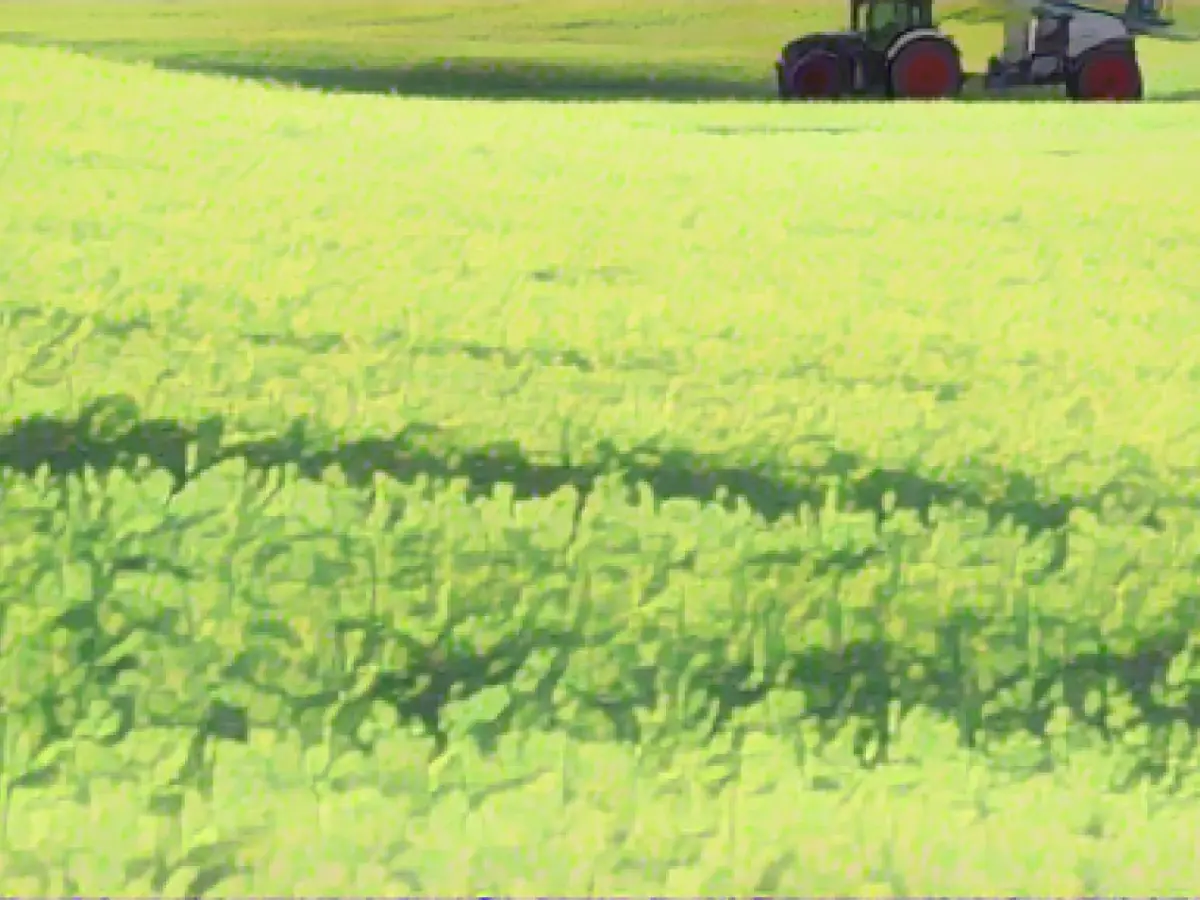Agricultural Backlash: FDP and Özdemir's Feud Over Subsidies
The political landscape in Germany is currently buzzing with accusations and counter-accusations, as the FDP and Minister of Agriculture Cem Özdemir trade barbs over proposed cutbacks in agricultural subsidies. Gero Hocker, food policy spokesperson for the FDP parliamentary group, has voiced concerns that the abolition of diesel subsidies for agriculture and the withdrawal of vehicle tax exemptions for farming and forestry operations would deliver a "hard double blow" to the agricultural sector.
Hocker casts a scornful eye towards Özdemir, accusing him of feigning concern for the agricultural sector while subtly applauding a move that he himself had initially proposed. In response to these allegations, the Ministry of Agriculture vehemently denies any involvement in the proposal, claiming that the Ministry of Finance first raised the issue of agricultural diesel subsidies as a means to offset future budget savings.
By the Ministry of Finance's estimation, the elimination of vehicle tax concessions for forestry and agriculture could generate a substantial 480 million euros per year. Although there is currently no word on the expected savings from the abolition of agricultural diesel tax rebates, the potential financial implications of these changes have incited anger and protest among farmers.
Critics of the Ampel coalition have pointed the finger at the government for neglecting their agricultural sector, likening the elimination of agricultural diesel tax rebates to a "punch in the gut" for rural industries. Hubert Aiwanger, the Bavarian Minister of Economic Affairs and a leader of the Free Voters, dubs the move to scrap subsidies as a "slap in the face" to farmers and a threat to food production in Germany.
In the wake of these controversies, Joachim Rukwied, the president of the Farmers' Association, has already announced protests and calls for the withdrawal of the coalition's plans. The Trump-like tone of Rukwied's statements has garnered significant media attention, as well as heated debates regarding the future of farming and environmental regulations within Germany.
Cem Özdemir, however, maintains that he had indeed voiced concerns about eliminating agricultural diesel subsidies and withdrawing funds from agriculture, having warned against such a move during internal consultations. Following the budget agreement, Özdemir expressed his reservations regarding the removal of the subsidies, citing the potential negative impact on farmers.
Robert Habeck, the Green leader and the second most powerful figure in the Traffic light coalition, has yet to provide a public response to the criticisms levelled against him and his party. As coalitions go, the Ampel coalition's unity could be at risk if these contentious issues are not addressed promptly and satisfactorily.
Enrichment Insights
The ongoing feud between the FDP and the Ministry of Agriculture has multiple dimensions, including economic, environmental, and political aspects.
- Economic Impact on Farmers: Farmers argue that the proposed cuts, specifically the reduction in diesel tax and vehicle tax exemptions, are detrimental to their competitiveness within the European Union. They claim that these subsidies are essential for their livelihoods, and the cuts would significantly increase their operational costs.
- Competitiveness and Sustainability: The FDP, through Finance Minister Christian Lindner, acknowledges farmers' frustrations but shifts the blame to environmental demands. Lindner suggests that the agricultural sector needs to be more ecologically responsible and transform into a more sustainable industry. He also attempts to redirect anger towards other issues like immigration and welfare policies.
- Environmental Concerns: Climate activists like Tobias Schied argue that agricultural diesel is a climate-damaging subsidy and that its phase-out is necessary. This perspective aligns with broader environmental goals but is seen as a challenge by farmers who rely on these subsidies for their operations.
- Historical Context and Structural Changes: The agricultural sector in Germany has undergone significant structural changes since the 1950s, with fewer people working in agriculture because of mechanization. These changes have led to growing frustration among farmers with laws and regulations that they perceive as overly bureaucratic and restrictive.
- Public Perception and Support: The protests garnered significant public sympathy, with 73% of the public expressing understanding towards farmers' demands. However, there were also criticisms that some of the farmers' actions were exaggerated and that large-scale farms were not on the brink of bankruptcy.
- Political Frustration and Coalition Dynamics: The government initially offered concessions, maintaining the vehicle tax exemption and phasing out the diesel tax reduction gradually. However, the protests continued, highlighting broader dissatisfaction with agricultural policy and raising concerns about the future of farming in Germany. This situation exposed further political frustrations within the ruling coalition (SPD, Greens, FDP).




